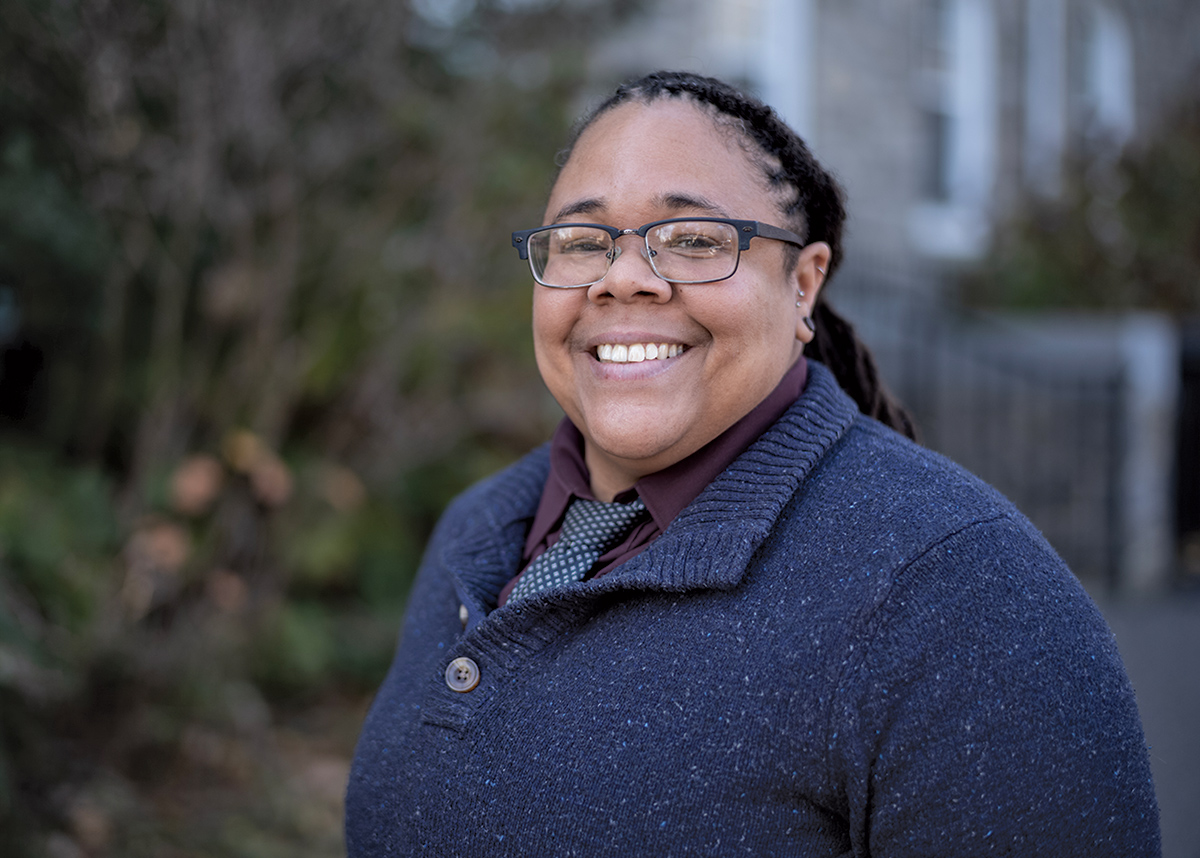
A PLACE OF COMMUNITY
What drew you to Swarthmore and to this position in particular?
Swarthmore’s small, liberal arts environment, which is very different from bigger institutions. When I came for the campus visit, I got the same kind of energy from everyone here: that it’s just a place of community. I knew right away that there was a different vibe here. And I was right!
What does being associate dean of inclusive excellence and community development entail?
The inclusive excellence piece is really the DEI [diversity, equity, and inclusion] part. That’s supporting the cultural centers: the Black Cultural Center, the Intercultural Center, the Interfaith Center, Women’s Resource Center, the International Student Center, our queer and trans programming. It’s also the DEI and anti-oppression, anti-racism, or LGBTQ-specific trainings that I lead … My office also supports Lunch-and-Learns and Community Conversations open to the entire campus.
The advocacy piece is working to make sure the students’ voices are heard and that they feel comfortable advocating for themselves. Though I’m student-facing primarily, anyone who walks through my door, at any level — who wants support around belonging — I’m here to listen and to empower them to advocate for their needs, and also to be an ally for other folks. We can’t do the work alone.
What’s the most striking difference between Swarthmore and other schools where you’ve worked?
The fact that almost every event is open to everybody, and everybody comes to them, is unique to Swarthmore. I would expect to see people from Environmental Services, Facilities, Public Safety, Communications, ITS come to an open house of the Black Cultural Center. They’re there! We see them, we’re celebrating together.
Where do you see Swarthmore excelling at inclusivity, and where do you see room for growth?
One of the things that the College, particularly admissions, really understands and has been prioritizing is bringing in first-generation and low-income [FLI] students, which are often folks of color and international students. We offer wonderful support through the FLI Office, which is great. But as we increase the numbers of first-generation and low-income students, we also need to increase the staff, the space, and supportive resources. We may look inclusive, but do we have the capacity to actually make sure FLI students stay here and graduate? The retention is just as important as the acceptance. Another way the College can grow is having a dedicated gender and sexuality center, which we currently do not have. This is a request that I consistently hear from students and alumni.
What do you do for fun?
I cross-stitch! My mom taught me when I was a kid. I just fell in love with it and I’ve been doing it for over 30 years. That’s what I do to relax at the end of the day, with a cup of tea or a glass of wine: cross-stitch while I watch some really bad reality TV.